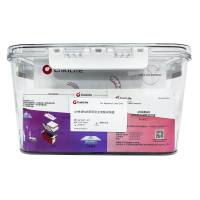Pure populations of tumor cells are essential for the identification of tumor-associated proteins for the development of targeted therapy. In recent years, laser capture microdissection (LCM) has been used successfully to obtain distinct populations of cells for subsequent molecular analysis. The polycomb group (PcG) protein, enhancer of zeste homolog 2 (EzH2), a methyl-transferase that plays a key role in �transcriptional gene repression, is frequently overexpressed in several malignant tumors. High levels of EzH2 are often associated with advanced disease stage in many solid tumors; however, its role in the pathogenesis of pancreatic ductal adeno-carcinoma (PDAC) is poorly understood. Because of the limited sample availability and the absence of in vitro amplification steps for proteins, the use of LCM for proteomics studies largely depends on highly sensitive protein detection methods. Here, we developed a faster and sensitive Western blot protocol and validated it for the detection of EzH2 in ∼2,000 cells. Initially, cultured PANC-1 cells were used to optimize protein electrophoresis and western blotting conditions. Gradient gel electrophoresis in combination with optimized antibody concentrations, and a sensitive chemiluminescent assay provided a strong signal. In order to further confirm the role of EzH2 in PDAC, employing siRNA-mediated gene silencing via long lasting plasmid vectors containing shRNA, we investigated the potential role of EzH2 gene silencing in pancreatic cancer regression. Positive correlation of EzH2 expression was observed with advanced stage, serous histology, and increasing grade in pancreatic cancer patient tissues. Further EzH2 knockdown resulted in decreased cell growth and invasiveness. The findings of this study emphasize that western blotting of a LCM-generated pure population of cancer cells may be a valuable technique for the study of tumor-specific proteins.






